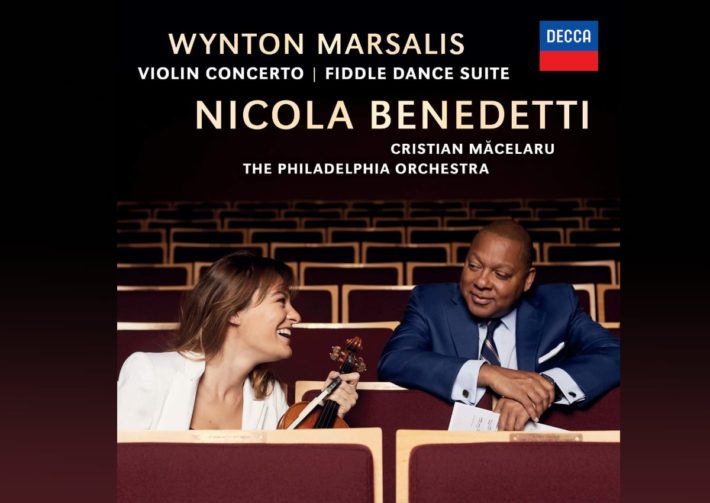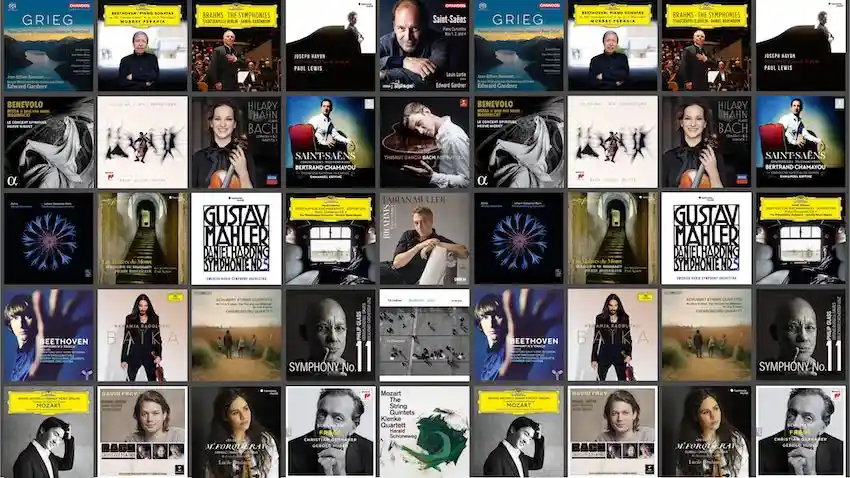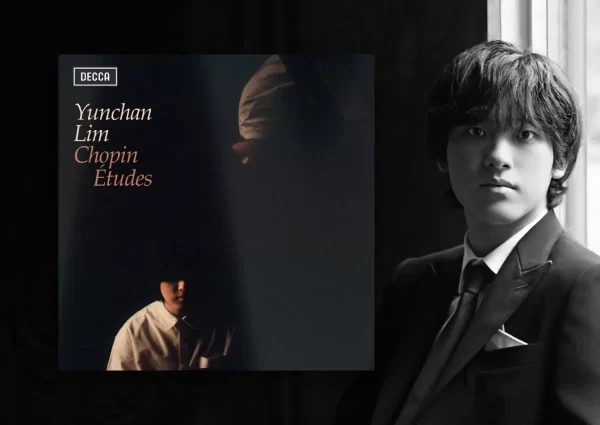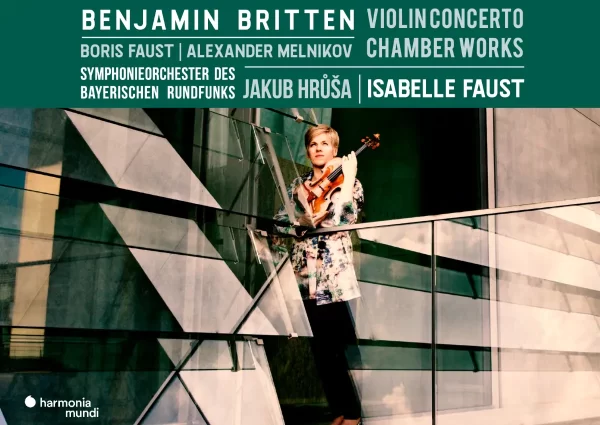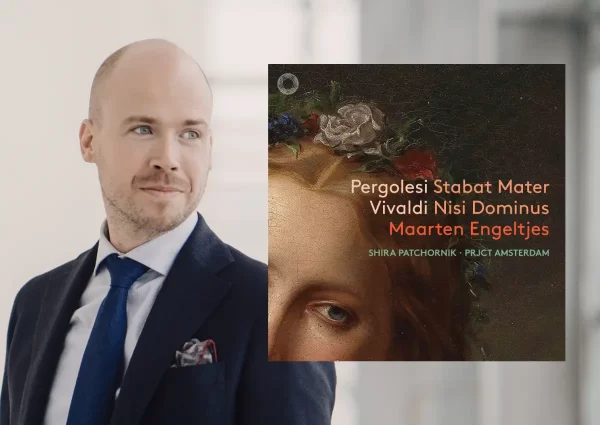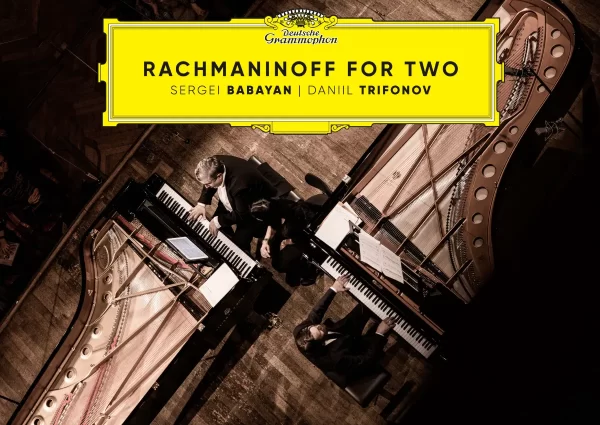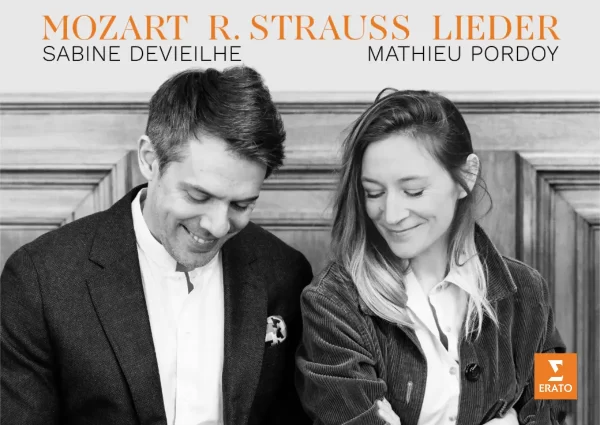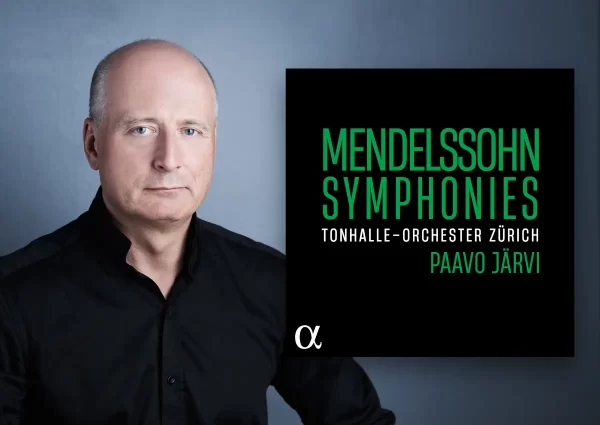Programmatic symphonic music has always been a tough sell. There are only a few major successes in the genre: Symphonie Fantastique, Pictures at an Exhibition, La Mer, and The Planets come to mind. It is therefore with high expectations that one listens to Wynton Marsalis’ new work for violin and orchestra, “Concerto in D”, after reading his own description of his programmatic ambitions in the liner notes. He writes, “movement 1, Rhapsody, is a complex dream that becomes a nightmare (…) and dissolves into ancestral memory.” Movement 3 (“Blues”) depicts “a progression of flirtation, courtship, intimacy, sermonizing, [and] final loss.” The concerto ends with Bendetti “[going] on down the Good King’s highway to other places yet to be seen or even foretold”.
Even though the concerto, at its best moments, is exciting and humorous, and gives Bendetti ample chance to showcase her talent, it does not succeed in its ambitions. Its program covers far too much emotional and musical ground, and it lacks enough thematic and formal elements to bind the disparate parts.
Bendetti amazes throughout, from the opening notes of the concerto, where she croons a Tchaikovsky-inspired theme, to the Rondo (track 2), where she seems to chase the winds around with drunken glissandi, to the “Hootenanny” (track 4), where she bounces and saws with virtuosity. She is disciplined and musical in the Rondo’s cadenza, which intriguingly has her in a duet with the orchestral percussionists. She “sermonizes,” as Marsalis describes it, with passion in “Blues” (track 3).
On the other hand, Bendetti’s playing does not make up for a poorly structured composition. Marsalis’ narrative is nonsensical: how does “ancestral memory” emerge from a dissolving nightmare? How does “sermonizing” come between love and loss? And how can the music that ends the concerto, which represents “other places yet…foretold,” be nearly the same music that ends the first movement, which represents the “ancestral memory”?
The music itself provides no answers to these questions. The Rhapsody’s dream and the Blues’ love-to-loss progression suffer from abrupt transitions between their sections; the score never “becomes” or “dissolves” as much as it seems to reach another rehearsal marking, because Marsalis struggles to build tension over more than a few bars. Part of this is due to the orchestration; too much of the orchestra is playing too often, and the colors become predictable. Another problem is that Marsalis wants to inhabit three or four harmonic worlds at once, and they interfere with each other. As for the parallel between the endings of the first and last movements, the passages are subtly different, and are actually catchy and intriguing; sans program, the parallel is nice. But as Marsalis frames it, the listener is forced to accept the metaphysical assertion that time is circular, and this makes the concerto as a whole a bit difficult to swallow. At any given moment, Marsalis’ orchestral writing may be thoughtful, driving, or smooth, but there’s simply too much going on.
Get periodic updates about new classical music albums reviews, news and guides.
We respect your privacy.
The Philadelphia Orchestra plays well throughout, providing skillful back-up to Bendetti. They don’t help Marsalis’ compositional woes, though; the strings don’t have many colors at their disposal, and the wind and brass sections’ articulations are never particularly interesting. This could be an artifact of the recording, which otherwise captures Bendetti’s sound very well.
The second work on the album, Marsalis’ “Fiddle Dance Suite,” is a nice bonus after the Concerto. Bendetti shows off her versatility, singing catchy melodies through dense triple stops, bending pizzicatos like a blues guitarist, and still playing the Bach- influenced elements like, well, Bach. The composition, excepting the first movement, which suffers from similar problems as the Concerto, is quite good. The phrases follow one another without instantaneous harmonic-world shifts, and rhythmic motifs provide structural frameworks. The one critique of this portion of the album is due to the second movement, “As the Wind Goes” (track 6), a mournful “campfire song [and] ballad”. Besides Marsalis utilizing a minor second as a tool for a common-tone modulation, which comes off as a bit gauche, the music is moving. But Bendetti’s playing is too sleepy; ballads need pulses. Rubato literally means “stolen;” if there is nothing to steal from, rubato won’t work well.
Even after several listens, this album can’t be recommended whole-heartedly. The Concerto is new but only infrequently original; the orchestration is standard; one can hear Bendetti shine on other recordings. The Fiddle Suite is good but doesn’t make up for the Concerto. Give it a listen if you’re interested in hearing a few intriguing moments or a whole lot of fine fiddling.

Marsalis – Violin Concerto, Fiddle Dance Suite
Nicola Benedetti – Violin
The Philadelphia Orchestra
Cristian Măcelaru – Conductor
Decca Classics, CD 2984850013
Follow Us and Comment:
Get our periodic classical music newsletter with our recent reviews, news and beginners guides.
We respect your privacy.

